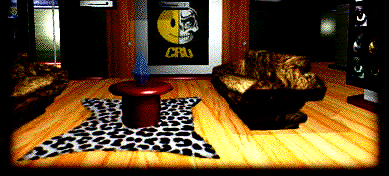
Legislative Update Page
Copyright Term Extension Act of 1997 (a.k.a. "Life Plus 70")
Our current length of copyright in the United States is "Life
Plus 50" -- in effect, songwriters
(and, posthumously, their heirs) hold the copyright to songs they
have written for the length
of the "life" of the songwriter, plus 50 years. The
U.S. copyright length is 20 years less than
the long-established "Life Plus 70" standard established
in the European Union. This bill
would extend U.S. copyright and is pending in Congress.
"The La Cienega Bill"
Is a mechanical recording (CD, cassette tape, record) a published
work or does it legally
constitute a copy of a published work? This is the issue behind
"The La Cienega Bill." The
distinction is important because if a "mechanical" constitutes
a "copy" of a published musical
work, then copyright notice should appear on all mechanical recordings.
Recently, the U.S. Court of Appeals for the Ninth Circuit upheld
a lower court decision in
La Cienega Music Co. v. ZZ Top which, in effect, determined that
mechanical recordings
did constitute the publication of a musical work. This decision
contradicts previous practices
and precedents where mechanical recordings were not considered
a "published" work
because they were not made in the form of visible notation (i.e.
sheet music). Consequently,
many mechanical recordings which do not carry a copyright notice
(or have not been
appropriately renewed with the copyright office) have been endangered.
In effect, if you hold
pre-1978 copyrights, this bill has probably placed them in the
public domain.
When the Supreme Court declined to review this case, the Register
of Copyrights requested
that the issue be addressed legislatively. The La Cienega Bill
was subsequently approved by
Congress and signed into law.
For a full exposition of this issue, see http://www.kramer-levin.com/ober396.html.
H.R. 789/S.28 (a.k.a. Fairness In Music Licensing)
This bill seeks to exempt a large portion of restaurant owners
and businesses from paying
licensing fees for playing music in their establishments, essentially
allowing them to use our
music for free. The performing rights societies have estimated
that, if it passes, this bill
would reduce the performance royalties of songwriters and publishers
by 20 - 50%.
Other Issues
See http://www.thomas.loc.gov to read the text of these bills
and others that may affect you,
including the Copyright Protection Bill.
You may also want to refer to the ASCAP, BMI, SESAC and NMPA
sites for further
information.
Copyright Office Online:
http://lcweb.loc.gov/copyright/
| GHOST | The House | Sony Sony Music |
| BERNIE B. | The CEO | National Academy of Song Writers |
| K.SOLO | BMI | MCA |
| NEW ARTIST |
PAYROLL RECORDS Home | ASCAP ASCAP |
![]()
![]()
![]()
![]()
![]()
![]()
![]()
![]()
![]()
![]()
![]()
![]()
![]() STRAIT
TALK PolyGram
Break Down
STRAIT
TALK PolyGram
Break Down
^^NEED A SITE HIT THE LETTER^^




